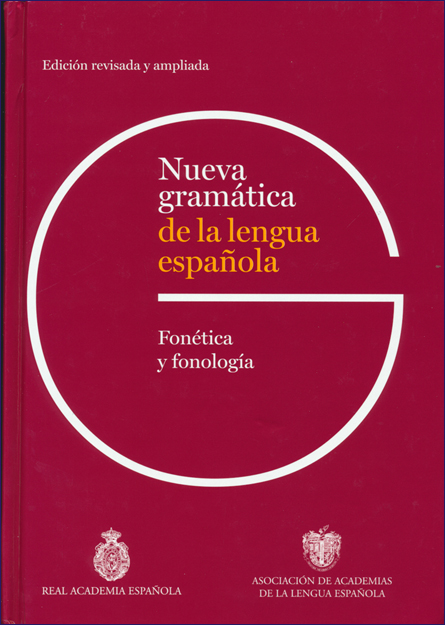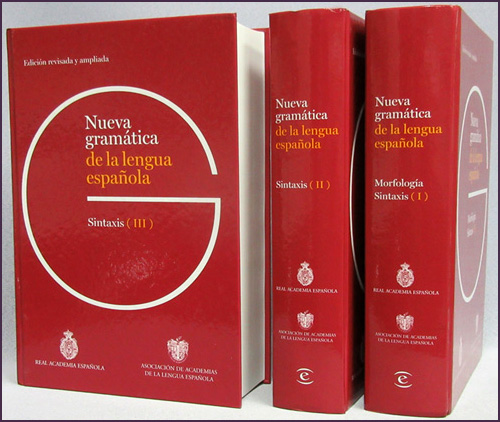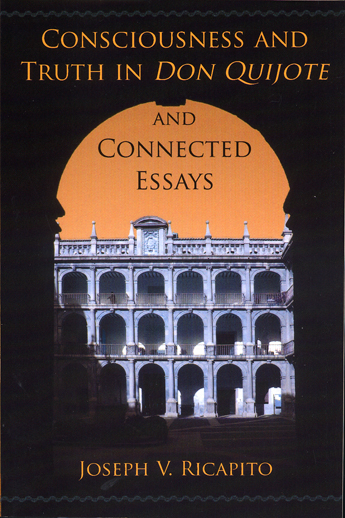Consciousness and Truth in Don Quijote and Connected Essays ∥ Ricapito, Joseph V.
-----------------------------------
ISBN13: 9781588711120
-----------------------------------
サイズ: 15 x 23 x 1.4 cm
-----------------------------------
頁 数: 186 pgs.
-----------------------------------
装 丁: paper cover
-----------------------------------
出版社: Juan de la Cuesta
-----------------------------------
発行年: 2007
-----------------------------------
発行地: Newark
-----------------------------------
双書名: Documentación Cervantina, 28
追加情報: ※ 詳細PDFリンク
Description:
This book attempts to study the Quijote through the twin themes of consciousness and the search for truth and objective reality. It is based on those philosophers who dealt with the question of consciousness, Heidegger and Husserl. The book is a study of the existential choices which the characters, including Don Quijote, make. The book’s methodology is also based on the application of consciousness studies, namely, the work of David Lodge and Juan Bautista Avalle-Arce. A very important source for the ideology of the book is the work of Americo Castro, whose writing on Don Quijote are of prime importance.
Consideration is given to Don Quijote’s change from a country gentleman to a faux caballero andant, modeled in part on Amadis de Gaula. Don Quijote gives up the comfortable but uninvolved life as a country gentleman in favor of his proyecto vital.
A very important part of the book is that dealing with the Captive (el cautivo). Cervantes’s purpose with these chapters (XXXIX - XLI) is to fictionalize his own experiences in the prison of Algiers. A particular detail about these chapters is the conversion of the Arabic young lady to Christianity, but Cervantes shows that her decision is also the cause of much grief on the part of her father. Consideration is given to a particular concern of the body as a projection of the wounds Cervantes suffered in Lepanto.
Another important aspect of the Quijote is the belief that nothing is final and that Cervantes will show that nothing can be seen as a final truth. The reader is never sure what games Cervantes will play with his audience keeping them on tenterhooks as he goes from one experience to another. Cervantes will also show how the characters approach their lives and how the decisions they make will touch upon others. Also important for this book is the rejection of the concept of the Quijote as being a part of the ‘funny book’ syndrome.
Another urgent aspect of the Quijote is its contact with the external situation of the history, economics and politics of the time. Such a situation of the decadence of the country is the background, often silent, to the Quijote.
TABLE OF CONTENTS:
Introduction......9
1. Consciousness and Don Quijote......11
2. Cervantes and Consciousness: The Christian and Muslim Worlds Juxtaposed......17
3. Consciousness, Don Quijote and the Muslim World......45
4. The Unendeng Quest for Truth and Objective Reality......57
5. Cervantes’s Don Quijote: Now You See it and Now You Don’t......65
6. Cervantes and Consciousness: ‘YUo sé quién soy, ‘ El caballero de los leones and Ricote el Morisco......81
7. Cervantes and the ‘Funny Book Syndrome’......93
8. Cervantes, Lepando and the Concepto of Wounding, Pain and Suffering......123
9. History, Society and Economics of the 16th and 17th Centuries with Reference to Don Quijote......149
Concluding Remarks......179
Selected Bibliography......181
-

RAE(スペイン王立アカデミー)とASALE(スペイン語アカデミー協会)が共同編集した改定新版「アカデミア最新スペイン語文法」シリーズ(既刊3巻)。2025年10月に刊行された本書は、その第4巻(最終巻)です。 2011年版の 555頁から 新版は 700頁余と大幅に改訂増補 !!
※ スペイン語の音声を体系的に理解するための資料として、研究者、教育関係者、上級学習者に不可欠であり、大学図書館・研究室にも必須の一冊です。
※ 大幅な改訂と更新: 旧版以降に進んだ最新の研究成果、特に言語の「バリエーション」に関する知見を全面的に反映。技術の進歩を活用し、内容の理解を助けるための工夫が凝らされています。
※ 具体的な革新点: 知覚音声学への配慮、第1章の全面的な書き直し、イントネーションを扱う第10章の大幅な改訂、QRコードによる発音サンプルの導入、補足的な参考文献の追加など。- Nueva gramática de la lengua española: Fonética y fonologia ∥ R.A.E.
- ¥16,500
-

※ スペイン王立アカデミーとASALE(スペイン語アカデミー協会)が共同編纂した、スペイン語の語彙の歴史を包括的に記録する辞書。語源・形態・意味の変化を詳細に解説しています。
※ DHLE(スペイン語歴史辞典)プロジェクトは現代のデジタル技術と国際的な共同作業体制を駆使して進行中の画期的な取り組み。
※ 10巻本・合計2万ページ超となる今回の紙書籍版(印刷版)は本プロジェクトの記念碑的な出版物。図書館・研究室の重要資料として長期保存の価値が高い文献になります。今後の更新はデジタル版に移行する見込みで、今回の書籍版は将来入手困難になることが予想されます。
※ 全10巻のうち、第1~3巻は現在では入手困難な1960年~1996年版(a-apasanca、b-bajoca)の復刻版です。過去の貴重な学術的成果であり、一次史料としての価値が高いものです。
※ 第4~10巻は2005年以降に進められたデジタル版DHLEから代表的な項目を抜粋して構成。
収録内容はスペイン語語彙史研究の最新成果を反映し厳選されています。- Diccionario histórico de la lengua española. in 10 vols. ∥ R.A.E. ※ 年度末セール特価 ※ 在庫品先着一名様限り 即納可!
- ¥186,120
-

好評発売中!!
第2版 増補改訂版3巻本 「アカデミア最新スペイン語文法」。2009年に2巻本として出版されてから16年、さらに広く深く、スペイン語圏全体のスペイン語を総合的に扱うスペイン語文法書の決定版です!
本書はスペイン王立アカデミー(RAE)とASALE が共同で編纂した最新のスペイン語文法を、より精緻に再構成した改訂増補版であり、形態論から統語論に至るまで、スペイン語の構造を体系的かつ包括的に示す研究書です。従来版よりも内容説明が充実し、分析の明確化、現象の地理的・社会的分布に関する情報の拡充、さらに学習者・研究者双方に配慮した丁寧な解説が加えられています。全3巻・約5000頁に及ぶ大部の構成は、汎ヒスパニック的視点を重視し、スペイン語圏全体の多様性を踏まえた記述を特徴としています。記述文法と規範文法の両面を兼ね備え、学術研究・高度教育機関において必携の基礎資料となる一冊です。- Nueva gramática de la lengua española - Edicion revisada y ampliada in 3 vols. ∥ Real Academia Española
- ¥48,400

